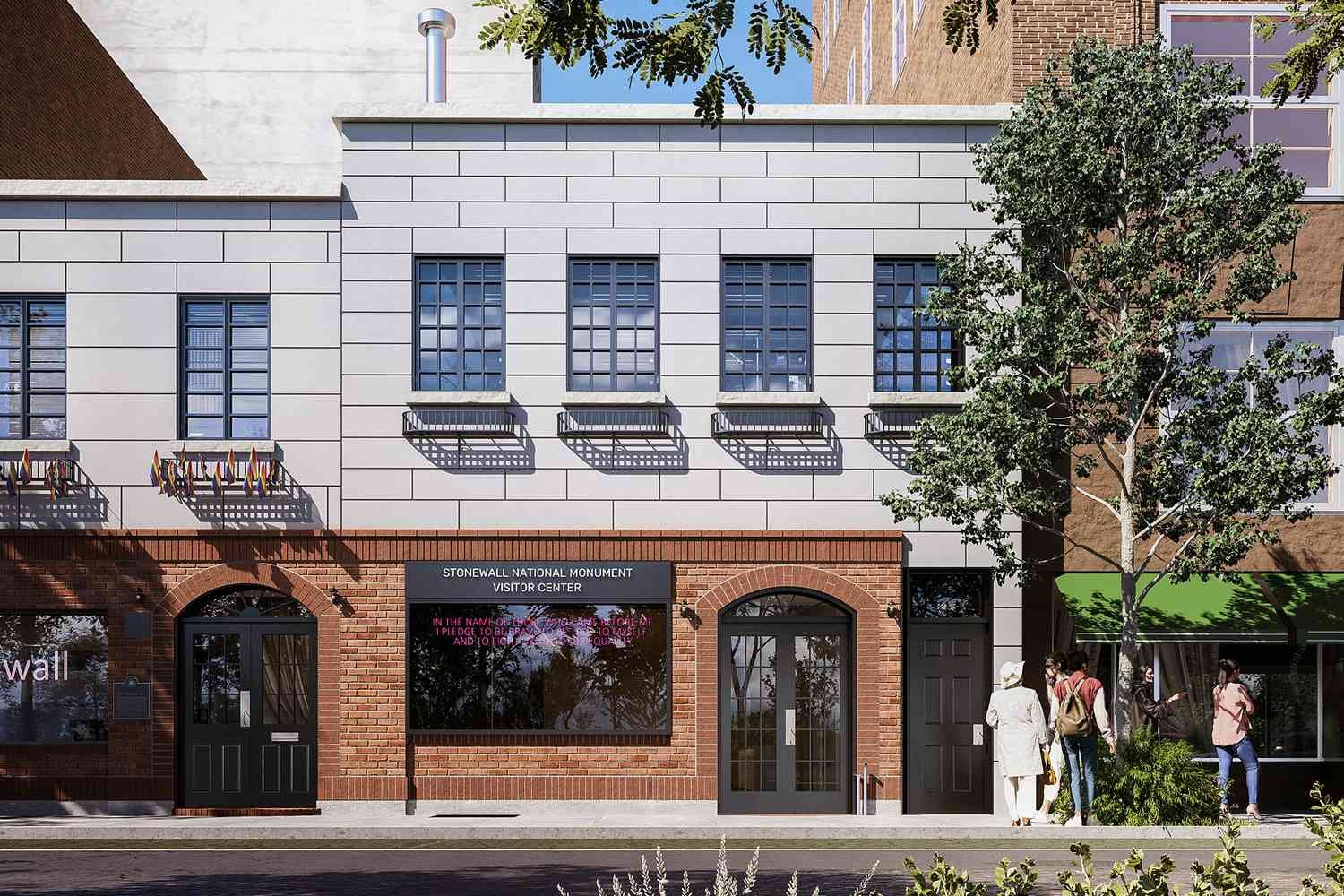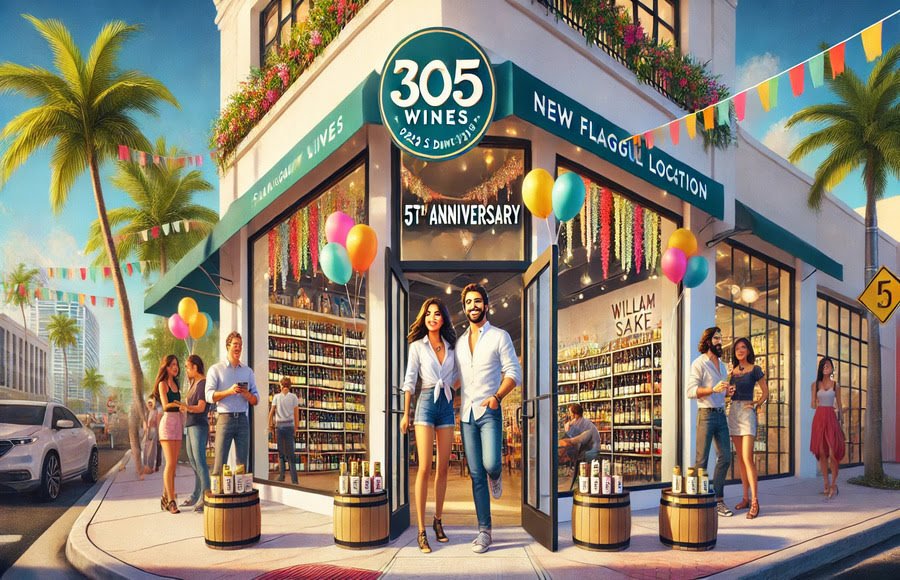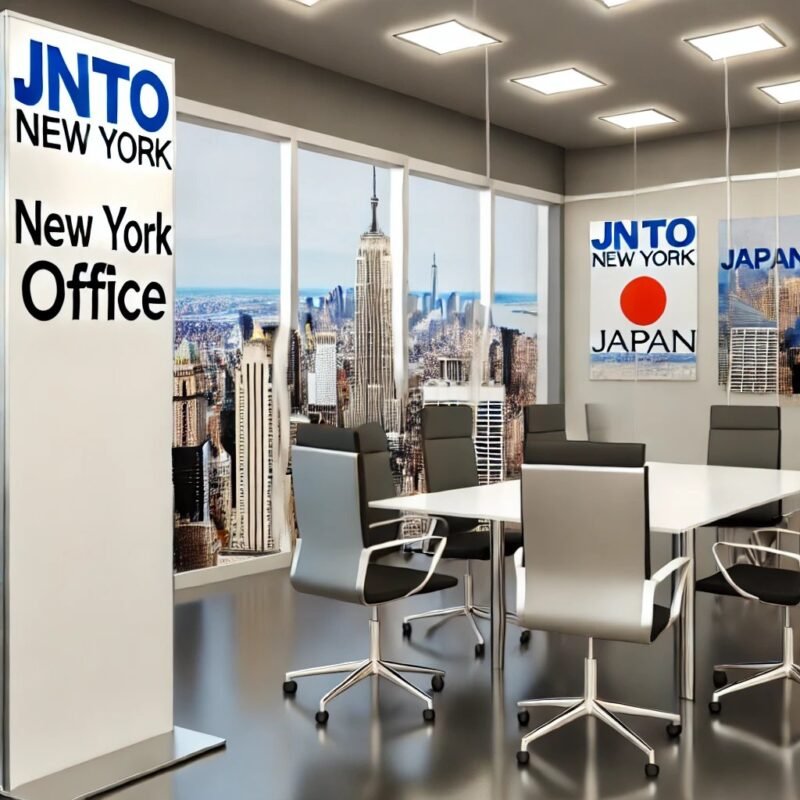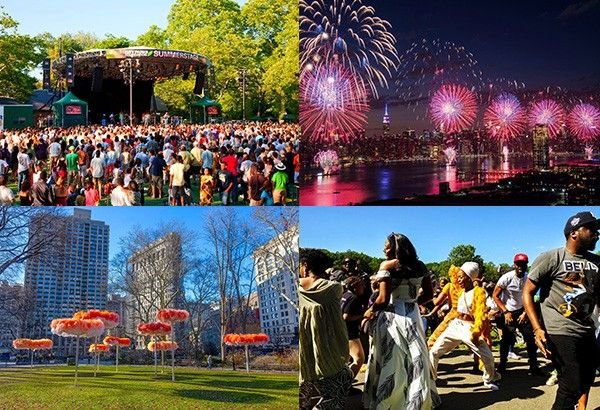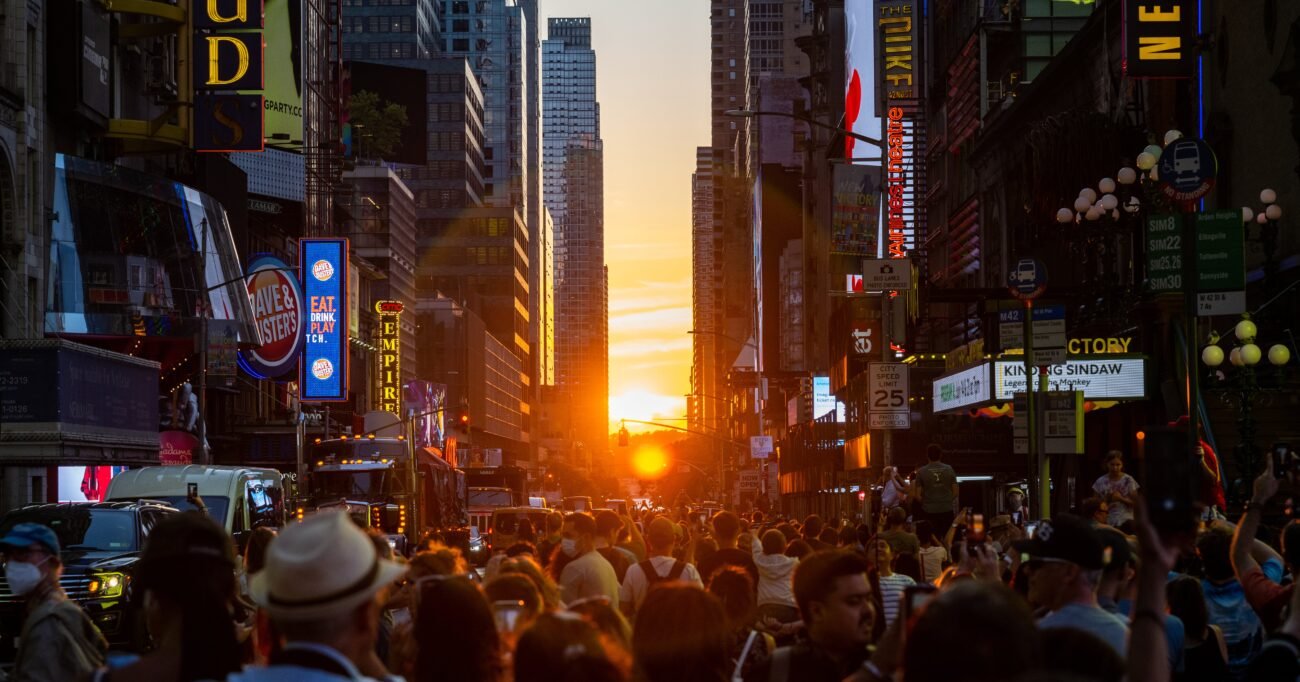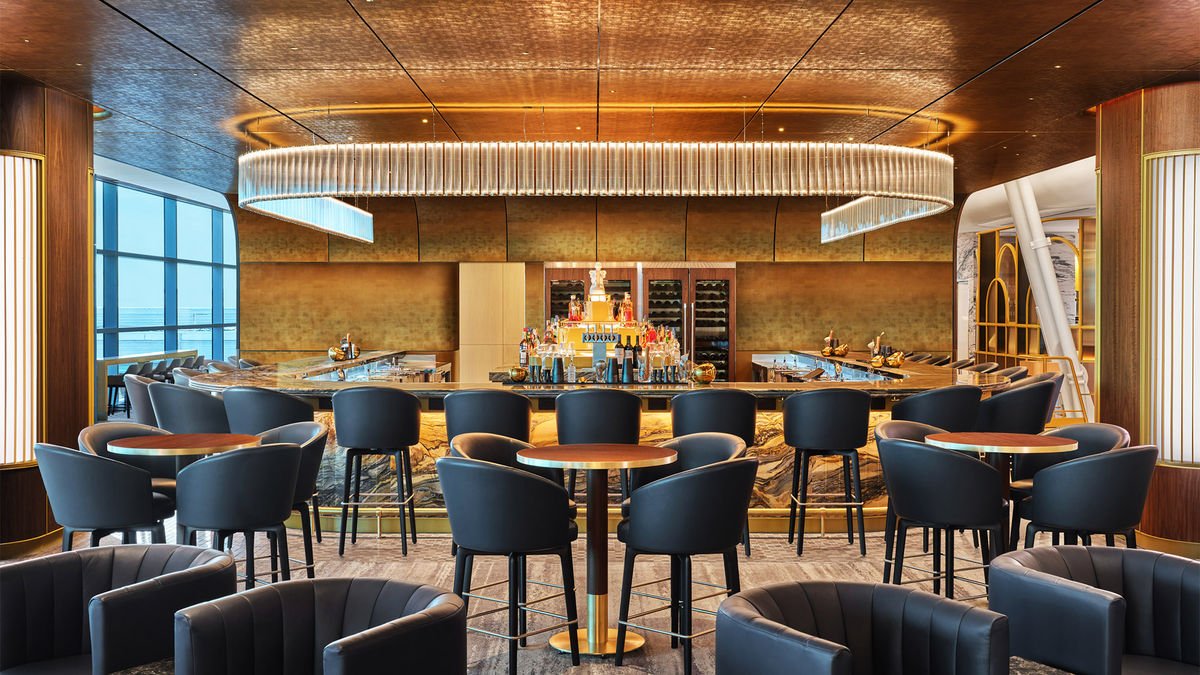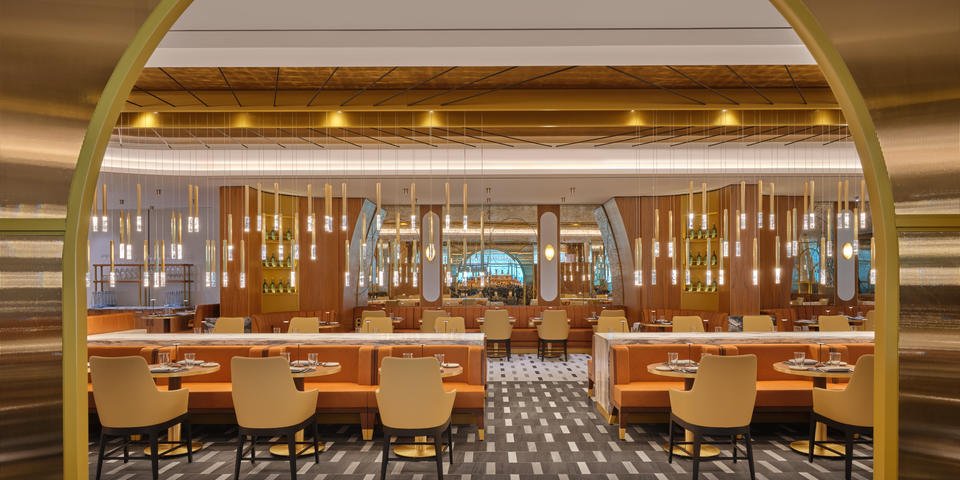When it comes to queer history, the city of New York has always been a national beacon. From ballroom culture to iconic nightlife venues to the devastating impact of the AIDS epidemic, New York City plays a pivotal role in shaping the global LGBTQ+ narrative. And there are countless institutions and organizations dedicated to not only preserving that history but also uplifting the community today.
Now, a space that pays homage to queer culture will add to that storied legacy with the debut of The Stonewall National Monument Visitor Center on Christopher Street, in the heart of one of Manhattan’s most important gayborhoods, just in time for this year’s Pride celebrations.
Plans to launch The Stonewall National Monument Visitor Center were hatched by the team at Pride Live, a nonprofit that advocates for LGBTQ+ causes, as early as 2016 when then-President Barack Obama designated the area surrounding Stonewall Inn, where the Stonewall Rebellion took place in the summer of 1969, a national monument. This recognition renamed the 7.7-acre pocket of Greenwich Village The Stonewall National Monument — the first U.S. national monument specifically designated to LGBTQ+ history and rights.
To Pride Live founder Diana Rodriguez, it’s only right for a U.S. national monument to have its own visitor center. “My vision for the visitor center is to advance the Stonewall legacy, engage today’s generation to take an active role in supporting that legacy, and highlight the historic partnership between the visitor center and the National Park Service (NPS),” Rodriguez told Travel + Leisure of the inspiration to open the venue.
For the Pride Live team, the visitor center didn’t even need to be a permanent structure — a mobile concept was also considered — but when 51 Christopher Street became available for lease in 2022, Pride Live jumped at the chance. That property was originally part of the building that was Stonewall Inn. The bar that stands on 53 Christopher Street today is all but a portion of the historic boite that was at the heart of the 1969 gay rights uprising. Since then, No. 51 has been all sorts of things (including a bagel shop) until Pride Live signed a 10-year lease to transform it into the visitor center. (In fact, No. 53 has held many lives, too, including as a Szechuan restaurant. The current Stonewall there now has only been opened as a gay bar since 2007.)
Courtesy of EDG Architecture + Engineering
So the visitor center’s opening is a reunion of sorts. While both venues are separate in both management and operation, they’re at least now cohesively related to the same historic moment in time. (And now, they’re both gay.)
“I think the most significant contribution we can make is having reclaimed what was the other half of the original Stonewall bar for the community, and of course, our historic partnership with the NPS,” Rodriguez said. “I wonder when folks think about the NPS they think a queer urban visitor center, but that’s us — and that is really cool.”
To reinforce her aspirations for the visitor center to be an educational destination that advances Stonewall’s indelible legacy, much of the 3,700-square-foot space has been dedicated to exhibitions and installations that highlight the importance of the gay rights movement that took root in and around Stonewall.
Because Christopher Park and the surrounding enclave have been given a national monument status, the National Park Service is already hosting tours (both virtual and in-person walks led by NPS rangers) around the neighborhood. The programming at the visitor center will focus on other types of content instead. Efrain Guerrero, the newly appointed Pride Live executive director, said the visitor center will also add a more family-oriented venue in a part of the Village heavy with bars, adding that following a $3 million renovation in partnership with countless donors, the visitor center is poised to become a cultural fixture in this storied district.
Some exhibitions include the West Wall, which features a series of panels curated by Stonewall pioneer, Mark Segal, who participated in the rebellion. Each panel retells first-hand accounts of the events that led up to Stonewall, details of the uprising, events directly after, and the lasting legacy of this movement that we still feel today. This is the most historically rooted installation at the visitor center as it will also explore the NPS’ role in the fight for equality.
Another dynamic display was developed in partnership with the Kinfolk Foundation, which built an augmented reality concept that celebrates underrepresented trans history. Always incredibly relevant but perhaps not as visible, trans representation couldn’t be more critical than it is today. Curated and designed by B.Hawk Snipes and Tourmaline, and displayed as part of the “Mothers of STAR” panel on the West Wall, the AR experience will specifically honor the decisive contributions of trans trailblazers of color without whom the gay rights movement may never have reached the heights it has so far: Marsha P. Johnson, Storme Delarverie, Sylvia Rivera, and Zazu Nova.
Rodriguez said the project she’s perhaps most excited about is the one they’re collaborating on with the Parsons New School, where the visitor center is now a part of the curriculum through an elective called Re:Generations. Students who take this class will create an exhibit that will become part of the visitor center’s rotating collection of content. The elective is offered annually, and every year, a new student production will be on display. What that is will be entirely decided by the student’s imagination.
“It is the exhibit I have the least control over, and I like that,” Rodriguez said. “That exhibit is up to the students at Parsons and will convey how they experience life as young queers or allies, and I think that voice is extremely important.”
But in addition to being an exhibition space, Guerrero revealed that the future of the visitor center will always be shaped by collaboration. “There are already many conversations happening about different ways that other LGBTQ+ organizations in the city can utilize the space,” he said, adding that workshops with the Victory Institute, events hosted by Lambda Legal, and even field trips for the Y’s LGTBQ+ summer youth camp are just a few of the possible happenings that we’ll see here in the future.







